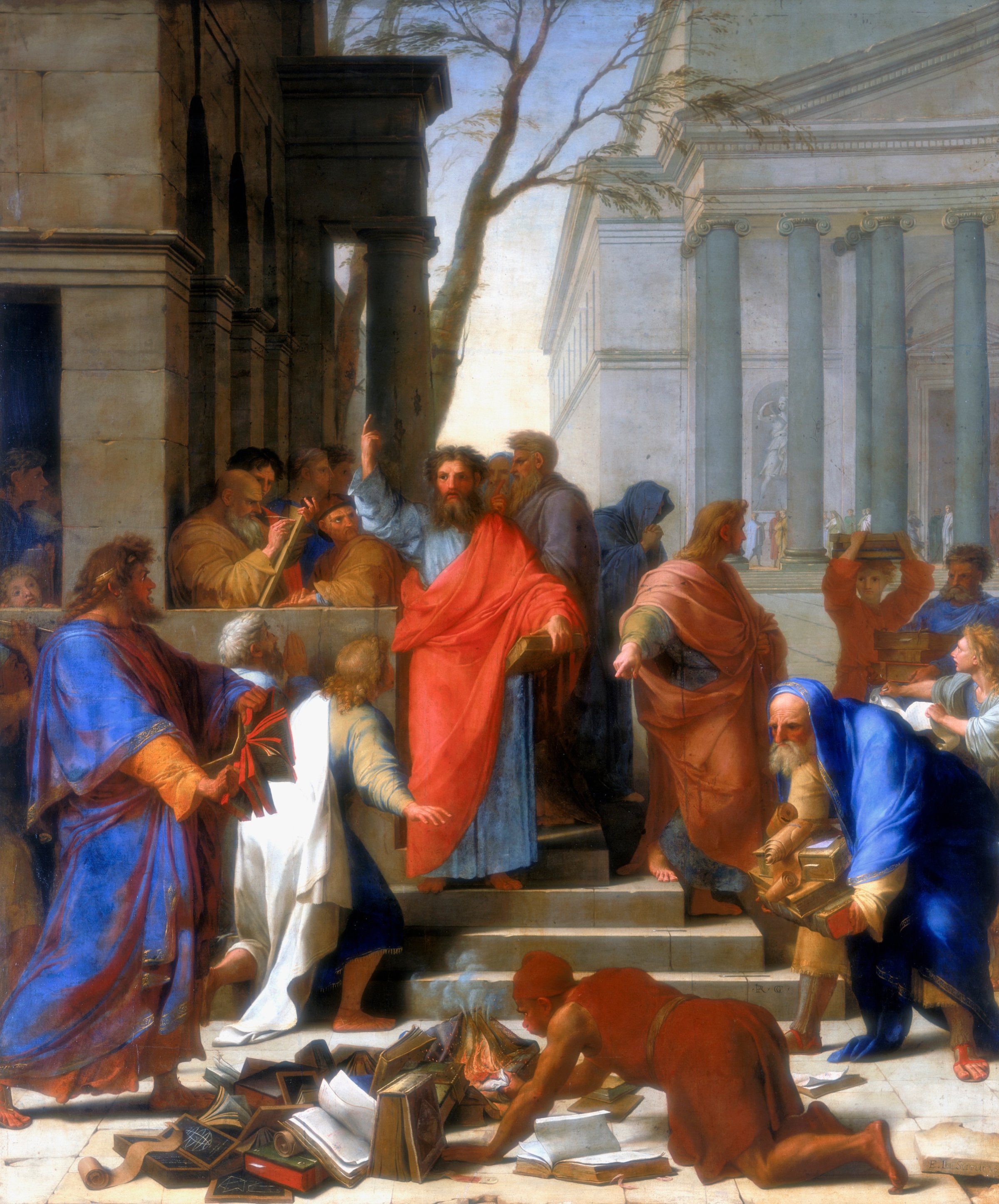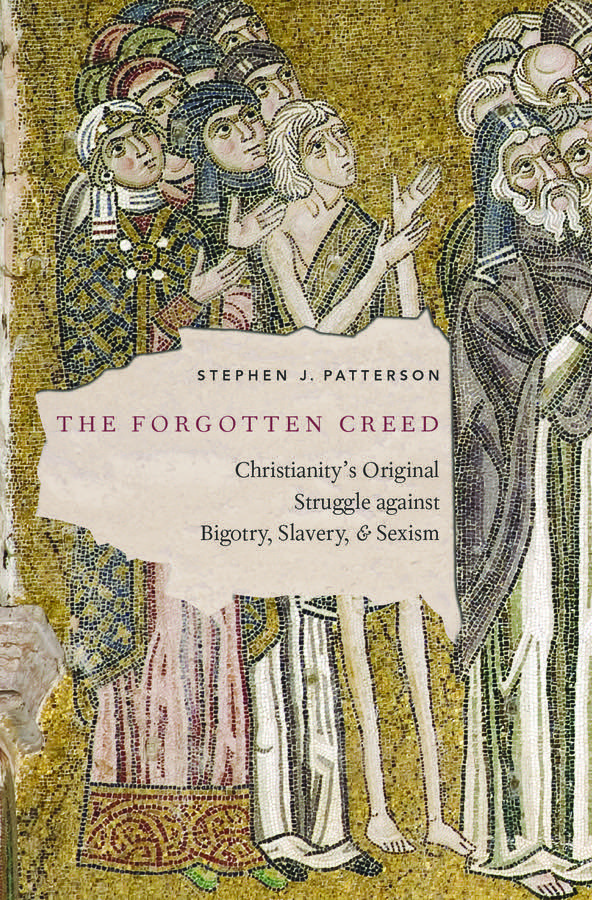
Jesus is remembered once to have said, “Who made me a divider? I’m not a divider, am I?” That line, found in the Gospel of Thomas, may strike an ironic note today: nothing, it seems, divides us more than Jesus — believer from non-believer; evangelical from liberal; Christian from Jew or Muslim. Religion divides us along ethnic lines and by class, and it imposes distinctions in male and female gender roles not tolerated anywhere else in society.
So it may seem a stretch to think that the very first Christian creed aimed not to divide, but to create ties of solidarity precisely across ethnic, class and gender lines. In fact, the early Christians made solidarity the very focus of the new communities they created. Their experiments with unity soon fell apart, but their attempts — and how they went wrong — are nevertheless worth remembering today.
The first Christian creed said nothing about the nature of God or Jesus Christ or salvation. It spoke of “the children of God,” and urged a spirit of “oneness” that could unite Jew and Greek, slave and free, male and female. Many today will find that idea incredible. But scholars of the New Testament have known of this early creed embedded in one of Paul’s letters for more than a century. You can find it today still there in Galatians 3:26-28. Unearthing it from this context and restoring its original lines requires some exegetical spadework, and scholars will quibble on its precise wording, but none doubt its existence or its age.
When the first followers of Jesus were baptized, this (more or less) is what they heard:
You are all children of God:
There is no Jew or Greek;
There is no slave or free;
There is no male and female;
For you are all one.
This creed was a riff on an ancient cliché, attributed by some to Socrates, others to Thales, that went something like this: “I thank the Fates every day that I was born a Greek, not a barbarian, free, not a slave, and a man, not a woman.” That was how ancient free men defined themselves and their privilege: by their ethnicity (Greek, Roman, etc.), their class (free), and their gender (male).
Race, class and gender have been used by every people in every time and place to draw a line between us and them, to the advantage of us, of course. But these early Jesus followers decided to assume a different posture: there would be no us, no them. Ethnicity, class, gender — these things would no longer count for anything. They simply would not exist.
“For you are all one,” they said. Not “you are all the same.” Sameness wasn’t the point. The point was “oneness” — solidarity that transcended race, class or gender.
But did anyone ever believe it, live it? For a time, yes — but not forever.
Take “no Jew or Greek,” for example. The Apostle Paul devoted his life to this proposition. His most distinctive idea, “justification by faith,” was originally a strategy for including non-Jews in his (mostly Jewish) Christian communities. Faith, or “trust,” would be key, he argued, not observance of the Jewish Law. But Paul succeeded beyond his wildest dreams, and solidarity quickly fell by the wayside. Soon, non-Jews would outnumber and crowd out Jews until, finally, there were no Jews left in the community. “No Jew or Greek,” at last, became simply “no Jews”; sameness had redefined oneness.
What about “no slave or free?” The ancient world was built on the fact of slavery. Challenging it would have signaled sedition. Still, some dared to. In the early second century, Ignatius of Antioch wrote to Polycarp of Smyrna, advising that “slaves should not long to be free by means of the common fund.” In Smyrna at least, some were using church funds to buy the freedom of slaves. But most early Christians rejected this idea. The final biblical word on it came not from Paul, but an imitator of Paul who wrote in the early second century, “Let all who are under the yoke of slavery regard their masters as worthy of honor, so that the name of God and the teaching may not be defamed” (1 Timothy 6:1). That word stood fast until the 19th century, when Christian abolitionists, first in Europe, and later in America, first began to question the Bible’s endorsement of slavery.
And “no male and female?” Scholars today believe that women in fact did play a role equal to that of men in the birth of Christianity, as even a simple reading of the Acts of the Apostles reveals. In Acts, each of Paul’s original churches is founded by a woman, or a woman and a man working together. But the Roman Empire was strongly patriarchal. By the second century most churches were mirroring the patriarchal culture around them. The same forger of Paul who put slaves in their place did the same for women, writing, “Let a woman learn in silence and all submissiveness. I permit no woman to teach or to have authority over men” (also 1 Timothy—2:11-12). That word still stands today in most churches.
So the first Christian creed was forgotten and its vision of solidarity across lines of race, class, and gender fell victim to banal human divisiveness.
“Who made me a divider?” Human nature. And yet, that original remarkable creed is still there, peering out from the pages of Paul’s letter. Perhaps someone might yet take it, and its vision, seriously.

Stephen J. Patterson is the Atkinson Professor of Religious Studies at Willamette University and the author of The Forgotten Creed: Christianity’s Original Struggle Against Bigotry, Slavery, and Sexism (Oxford University Press, 2018).
More Must-Reads from TIME
- Cybersecurity Experts Are Sounding the Alarm on DOGE
- Meet the 2025 Women of the Year
- The Harsh Truth About Disability Inclusion
- Why Do More Young Adults Have Cancer?
- Colman Domingo Leads With Radical Love
- How to Get Better at Doing Things Alone
- Michelle Zauner Stares Down the Darkness
Contact us at letters@time.com